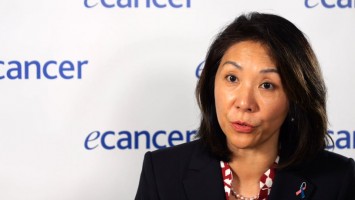Basically my work spans across what they call cancer health disparities. In this area I am focussing majorly on two cancers – prostate cancer and colon cancer. So today I’m going to be giving a talk on prostate cancer. In prostate cancer we are trying to look at prostate cancer in the face of disparity; we’re trying to understand the risk factors that cause prostate cancer in African-Americans and in rural Africans following the transatlantic move from the African continent to the United States and other parts of the world.
How is this research progressing and what is there in the pipeline?
What is in the pipeline in the prostate cancer aspect we are working on the platform of a consortium called Prostate Cancer Transatlantic Consortium. It’s an NIH, NCI, EGRP approved consortium that tries to look at prostate cancer in black men globally using that transatlantic move. So basically what we have found here is we are focussing on stress, what we call stress, basically cancer patients are more likely to come in contact with stress. So we are focussing on a protein that is associated with stress called cortisol, cortisol protein. We are trying to see what is the relationship between this cortisol and prostate cancer generally and also what is the relationship between this cortisol and prognosis of cancer in patients.
The second aspect of this is colorectal cancer. Colorectal cancer is one of the most deadly cancers that is causing a huge burden of morbidity and mortality across the globe. So in Africans, Americans, what we are doing in Africans and African-Americans is that we are actually trying to study a protein called baculoviral IAP repeat containing protein 7, BRIC7. This protein is a family member of inhibitor of apoptosis proteins so any time we have the expression of this protein in the colorectal cancer microenvironment it’s more likely that that particular cancer is not going to respond to treatment and even if it does respond to treatment for some time there is a possibility of having a recurrence in some local or general metastasis.
What do you hope to see over the next few years?
Over the next few years we want to see… in the United States there have been some great achievements when it comes to cancer management. The number of people dying from cancer has drastically reduced but when it comes to Africa the number is increasing exponentially. So over the next few years we are expecting to see that what is happening in the United States here translates directly to Africans in the rural African environment. How we are pushing this forward is actually via a series of collaborations. We have several collaborations – I am a council member of the American Association for Cancer Research and also a next gen star. I also have several collaborations abroad with the University of Florida and several other universities. So we are trying to use this mode to see how does it translate to better patient management in Africa.
Then, lastly, what I want to say is that we have a strong collaboration with an organisation called BioVentures for Global Health. BioVentures for Global Health is actually trying to make cancer drugs and technologies readily available to Africans so we are actually moving a very big deal in this aspect to see that African cancer patients have readily available drugs that they can afford and manage.








